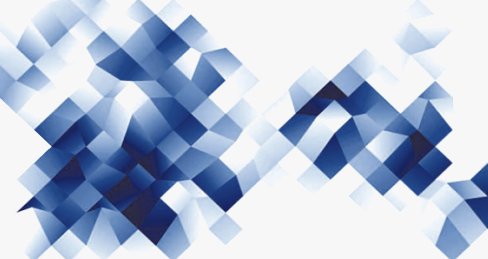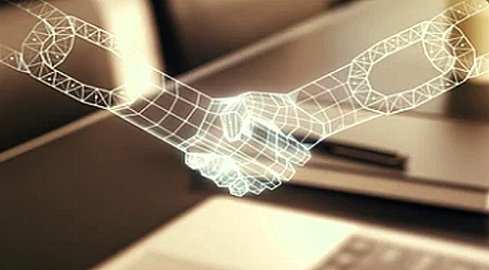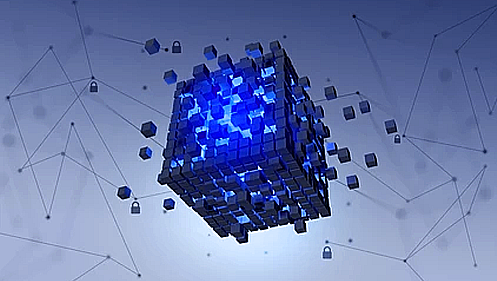Accredited InvestorsAltcoinAnatoli UnitskyAnti-Money Laundering (AML) In CryptoAPIArbitrageArtCoin TokenArticle DirectoryASICAuction Terminology GlossaryBasics of Stock Market InvestingBear MarketBest Crypto Payment Provider In the WorldBitcoinBlockchainBlockchain ConfirmationBlockchain Consensus MechanismBlockchain ForkBlockchain GlossaryBored Ape Yacht ClubBuild a Business That OutperformsBull MarketBuying SkyWay SharesByzantine Fault Tolerance (BFT) ExplainedCasascius CoinCentral Bank Digital Currency (CBDC)Centralized Crypto ExchangeCoinCoinsetCold WalletCollateralCommodity Futures Trading Commission (CFTC)Cross-Chain TechnologyCRUCrypto ExchangeCrypto GlossaryCrypto JokesCrypto Terms to KnowCrypto TickerCryptocurrencyCryptographyCryptojackingCryptounit BlockchainCryptounit GlossaryCryptounit ProgramdApp (Decentralized Application)Dead CoinDecentralized Exchange (DEX)Decentralized Finance (DeFi)Difference Between Bitcoin and EthereumDifferent Ways of Investing MoneyDigital CurrencyDistributed LedgerDo Your Own Research (DYOR)Dollar Cost Averaging (DCA)Dow Jones Industrial Average (DJIA)EncryptionERC-20ERC-721EthereumEvoScentFear Of Missing Out (FOMO)Fear, Uncertainty and Doubt (FUD)Fiat MoneyFNT Fintech CompanyGenesis BlockGlobal Unit PayGlossary of Banking TermsGlossary of Business TermsGlossary of Financial TermsHalvingHODLHot WalletHow Do I Start InvestingHow Rich is Satoshi Nakamoto?How to Create a BlockchainHow to Find Private InvestorsHow to Get Into FintechHow to Program Smart ContractsI Am Thrilled to Be a Part of This Global ProjectInitial Coin Offering (ICO)Initial Public Offering (IPO)Initial Token Offering (ITO)Innovation Basalt TechnologyInnovative Transportation TechnologiesInternational Bank Account Number (IBAN)Investing in Gold Mining StocksInvesting in Gold MiningJagerJoy of Missing Out (JOMO)Know Your Customer (KYC)LedgerLiquidity in CryptocurrencyMaker and Taker Fees in Crypto TradingMarket Capitalization (Market Cap)Meme CoinMetal Credit CardMetaMaskMillenials Now Have Access to Generational WealthMy Best Investment EverNew Digital EvolutionNFT GlossaryOff-Chain TransactionsOn-Chain TransactionsOpen Edition NFTPeer-to-Peer (P2P)Personal Loan GlossaryProbably the Best STO on the MarketProof of Stake (PoS)Real Estate Glossary of TermsReal Estate Investing GlossaryRebase TokenSecurities and Exchange Commission (SEC)Security Token ExchangesSecurity Token Offering (STO)Soulbound Decentralized Identities for Security TokensSoulbound ID Launch by Stobox Proves a SuccessSoulbound TokensStoboxStock Market GlossaryTestimonialsTether Platform and Token (USDT)UnitEx ExchangeUnitsky String TechnologiesUNTBUSDUValidatorWe Started Investing When We Were 25What are Blue Chip NFT?What are Blue Chip Stocks?What are Crypto Assets?What are Crypto Smart Contracts?What are CryptoPunks NFT?What are Digital Assets?What are Digital Collectibles?What are Gas Fees?What are Gas Wars?What are Hashmasks?What are Non Fungible Tokens?What are Non-Sufficient Funds (NSF)?What are Soulbound Tokens (SBT)?What are Stablecoins in Crypto?What are Transactions Per Second (TPS)?What are Utility NFTs?What are Utility Tokens?What Does Burning Crypto Mean?What Does Diamond Hands Mean?What Does Paper Hands Mean?What Does To The Moon Mean?What Does WAGMI Mean?What Happened to Satoshi Nakamoto?What is a 51% Attack?What is a Baby Boomer?What is a Backlink?What is a Banner?What is a Barcode?What is a Bid-Ask Spread in Crypto?What is a Block in Blockchain?What is a Block Reward?What is a Blockchain Address?What is a Blockchain Node?What is a Blockchain Oracle?What is a Blog?What is a Bond?What is a Bot?What is a Broker?What is a Business Accelerator?What is a Cash Cow?What is a Commercial Bank?What is a Commodity?What is a Con?What is a Credit?What is a Credit Limit?What is a Credit Rating?What is a Crypto Airdrop?What is a Crypto Bridge?What is a Crypto Scam?What is a Crypto Token?What is a Crypto Wallet?What is a Crypto Whale?What is a Crypto Winter?What is a Cryptocurrency Public Ledger?What is a Cryptocurrency Roadmap?What is a DAO?What is a Dark Pool?What is a Day Trader?What is a Dead Cat Bounce?What is a Default?What is a Derivative?What is a Digital Credit Card?What is a Fiscal Quarter?What is a Fungible Token?What is a Governance Token?What is a Grace Period?What is a Hard Fork?What is a Hot Wallet?What is a Hybrid Blockchain?What is a Hybrid PoW/PoS?What is a Joint Account?What is a Market Cap?What is a Merkle Tree in Blockchain?What is a Mining Farm?What is a Nonce? What is a PFP NFT?What is a POS System?What is a Prepaid Card?What is a Private Blockchain?What is a Private Key?What is a Public Blockchain?What is a Public Key?What is a Reserve Currency?What is a Ring Signature?What is a Routing Number?What is a Rug Pull in Crypto?What is a Safe Deposit Box?What is a Satoshi?What is a Security Token?What is a Seed Phrase?What is a Shitcoin?What is a Sidechain?What is a Soft Fork?What is a Spot Market?What is a State Bank?What is a SWIFT Code?What is a Tax Identification Number (TIN)?What is a Time Deposit?What is a Transaction Account?What is a Variable Interest Rate?What is a Virtual Assistant (VA)?What is a Virtual Card?What is a Virtual Currency?What is a Visa Card?What is a Whitelist in Crypto?What is a Whitepaper?What is Accounts Payable (AP)?What is AMA in Crypto?What is Amortization?What is an Accrual?What is an ACH Transfer?What is an Actuary?What is an Addendum?What is an Algorithm?What is an Angel Investor?What is an Annuity?What is an Asset?What is an ATM?What is an Atomic Swap?What is an Audit?What is an Avatar?What is an EIN?What is an Embargo?What is an Entrepreneur?What is an IDO (Initial Dex Offering)?What is an Interest Rate?What is an Internet cookie?What is an Investment Bank?What is an NFT Drop?What is an NFT Floor Price?What is an Ommer Block?What is an Orphan Block?What is an Outstanding Check?What is an Overdraft?What is Artificial Intelligence (AI)?What is B2B (Business-to-Business)?What is B2G (Business-to-Government)?What is Bartering?What is Bitcoin Dominance?What is Bitcoin Pizza Day?What is Blockchain Immutability?What is Blockchain Used For?What is BRICS?What is Business-to-Consumer (B2C)?What is C2C (Customer to Customer)?What is Capitalism?What is Catfishing?What is CFD Trading?What is Check Kiting?What is Cloud Mining?What is Communism?What is Content Marketing?What is Decentralization in Blockchain?What is DeFi in Crypto?What is Delisting?What is Depreciation?What is Digital Marketing?What is Diversification?What is Double Spending?What is Dumb Money?What is Dumping?What is Earnings Per Share (EPS)?What is Economics?What is Email Marketing?What is Equity?What is Etherscan?What is Fintech?What is Foreign currency?What is Forex?What is Fundamental Analysis (FA)?What is GameFi?What is Generative Art NFT?What is Gwei?What is Hard Currency?What is Hash Rate?What is Hashing in Blockchain?What is Inflation?What is Initial Game Offering (IGO)?What is Interest?What is Interest Income?What is Mainnet?What is Mastercard?What is Metaverse in Crypto?What is Mining in Cryptocurrency?What is Minting NFT?What is Mobile Banking?What is Money Laundering?What is NFT Alpha?What is NFT Metadata?What is NFT Rarity?What is NGMI Meaning?What is Nominal Interest Rate?What is Online Banking?What is Open-End Credit?What is OpenSea NFT Marketplace?What is Personal Identification Number (PIN)?What is Play-to-Earn?What is Polygon?What is Proof of Authority (PoA)?What is Proof of Work (PoW)?What is Public Key Cryptography?What is Pump and Dump?What is Quantum Computing?What is Refinancing?What is Retail Banking?What is Ripple?What is Sharding?What is Slippage in Crypto?What is Smart Money?What is Solvency?What is Soulbound ID?What is SSL?What is Staking in Cryptocurrency?What is Technical Analysis (TA)?What is Testnet?What is the Ask Price?What is the Better Business Bureau (BBB)?What is the Bid Price?What is the Dark Web?What is the InterPlanetary File System (IPFS)?What is the Gold Standard?What is the Lightning Network?What is the Prime Rate?What is the Sandbox?What is the Secondary Market?What is the World Bank?What is Tier 1 Capital?What is Tokenomics?What is TRC-20?What is Universal Banking?What is Unspent Transaction Output (UTXO)?What is Usury?What is Volatility in Crypto?What is Wash Trading?What is Web3?What is Whisper?What is XRP?What is Zero-Knowledge Proof (ZKP)?Who is Beeple?Who is Satoshi Nakamoto?Who is Vitalik Buterin?Why Tokenization is a Safe HavenWhy You Should Try Your Hand at Trading
What is a Blockchain Oracle?
- Home
- Blockchain Glossary
- What is a Blockchain Oracle?
Oracles provide a valuable solution by facilitating the connection between real-world information and blockchain operations.

By utilizing oracles, users have a multitude of options to incorporate blockchains into their daily routines and make them more functional.
What is a Blockchain Oracle?
A blockchain oracle refers to a third-party service that furnishes smart contracts with external information, acting as a link between blockchains and the outside world. As blockchains and smart contracts cannot access off-chain data, blockchain oracles provide a crucial link to relevant external information for executing contractual agreements. They broaden the scope in which smart contracts can operate, making them more valuable. Without blockchain oracles, smart contracts would be limited to data from within their networks, and their use would be restricted.
It is important to note that a blockchain oracle does not act as the data source itself, but rather as the layer that verifies and authenticates external data sources, relaying that information to smart contracts. This information can be transmitted in various forms, including price data, payment completion status, or sensor measurements.
To access external data, smart contracts have to be triggered, and network resources need to be expended. In addition to relaying data to smart contracts, some oracles can also send it back to external sources.
The operating mechanisms of blockchain oracles vary widely, depending on their design. Many different types of oracles are available, and now we`ll discuss some of them.
Different Types of Blockchain Oracles
The different types of blockchain oracles offer a wide range of functions and benefits to developers, businesses, and individuals looking to leverage blockchain technology. Let's take a closer look at some of the most common types of blockchain oracles.
- Hardware Oracles - Hardware oracles refer to blockchain oracles that use physical devices to transmit external data to smart contracts. This type of oracle is most commonly used to extract and transmit data from Internet of Things (IoT) devices, such as sensors and tracking systems. The data is then verified by the oracle and transmitted to the smart contract for execution.
- Software Oracles - Software oracles are a popular type of blockchain oracle that utilizes software programs to retrieve and transmit external data. This type of oracle is versatile and can be used to retrieve a wide range of data, such as stock prices, weather forecasts, and news articles.
- Consensus Oracles - Consensus oracles utilize a decentralized network of validators to verify external data before transmitting it to a smart contract. This type of oracle provides a high level of trust and reliability since the data is verified by multiple sources before being transmitted to the blockchain.
- Prediction Oracles - Prediction oracles are used to determine the outcome of real-world events and can be used to execute conditional smart contracts. This type of oracle is commonly used in prediction markets and sports betting applications.
- Credential Oracles - Credential oracles are used to verify the authenticity of data sources before transmitting data to a smart contract. This type of oracle is commonly used in identity verification applications, ensuring that data is accurate and trustworthy.
Why Are Blockchain Oracles Important?
The importance of blockchain oracles cannot be overstated in most blockchain applications. They act as a crucial bridge to facilitate the exchange of data between the blockchain and external systems. Without oracles, blockchains would be isolated systems incapable of responding to external events.
The Oracle Problem
Oracles play a crucial role in maintaining a healthy blockchain ecosystem by providing data to smart contracts for decision-making. However, designing oracles poses a significant challenge as a compromised oracle can also compromise any smart contract relying on it, known as The Oracle Problem.
Unfortunately, oracles are not included in the main blockchain consensus, and they do not benefit from the security mechanisms that public blockchains offer. This creates a trust conflict between third-party oracles and the trustless execution of smart contracts, which remains an unresolved issue.
Moreover, man-in-the-middle attacks pose a significant threat to the oracle system. Malicious actors can gain access to the data flow between the oracles and the contract and manipulate or falsify the data, further exacerbating the trust issues.
Blockchain Oracles and Crypto
Cryptocurrencies are highly volatile, and their value can fluctuate rapidly in response to market conditions. To make informed decisions, cryptocurrency traders and investors require up-to-date information about market trends and prices.
This is where blockchain oracles come in. A blockchain oracle is a trusted data source that can provide external data to a blockchain. Oracles are essential because blockchains are closed systems that cannot interact with external data sources on their own.
In the context of cryptocurrency, blockchain oracles can provide critical data about market conditions, exchange rates, and other external factors that can influence the value of cryptocurrencies. This data is then used by smart contracts to execute trades or other actions based on pre-defined conditions.
For example, an investor may use a blockchain oracle to monitor the price of a particular cryptocurrency. When the price reaches a certain level, the smart contract can automatically buy or sell the cryptocurrency on the investor's behalf.
Blockchain oracles can also provide critical information about the supply and demand of cryptocurrencies. This information can be used to adjust the mining difficulty of cryptocurrencies to maintain a stable network and prevent excessive inflation or deflation.
However, there are some challenges associated with blockchain oracles. One of the primary concerns is the accuracy and reliability of external data sources. Oracles must be trustworthy and secure to ensure the integrity of the blockchain network. If a malicious actor gains control of an oracle, they could manipulate the data and compromise the blockchain's integrity.
Another challenge is the cost associated with using blockchain oracles. Since oracles rely on external data sources, there may be fees associated with accessing this data. These fees can add up, especially for high-frequency trading.
Related Articles

What are Crypto Smart Contracts?
To address this issue, blockchain developers have introduced the concept of an "oracle", which can feed external data into a blockchain system.

Blockchain
Blockchain transactions take place on a peer-to-peer network of geographically dispersed computers (nodes). Each node keeps a copy of...
- Home
- Blockchain Glossary
- What is a Blockchain Oracle?